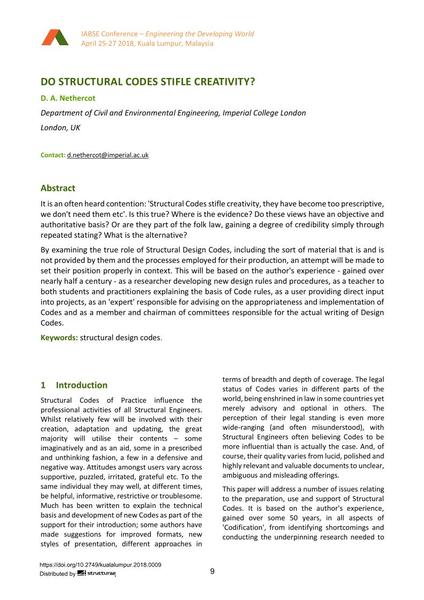Do Structural Codes Stifle Creativity?

|
|
|||||||||||
Bibliografische Angaben
| Autor(en): |
David A. Nethercot
(Department of Civil and Environmental Engineering, Imperial College London London, UK)
|
||||
|---|---|---|---|---|---|
| Medium: | Tagungsbeitrag | ||||
| Sprache(n): | Englisch | ||||
| Tagung: | IABSE Conference: Engineering the Developing World, Kuala Lumpur, Malaysia, 25-27 April 2018 | ||||
| Veröffentlicht in: | IABSE Conference Kuala Lumpur 2018 | ||||
|
|||||
| Seite(n): | 9-18 | ||||
| Anzahl der Seiten (im PDF): | 10 | ||||
| DOI: | 10.2749/kualalumpur.2018.0009 | ||||
| Abstrakt: |
It is an often heard contention: 'Structural Codes stifle creativity, they have become too prescriptive, we don't need them etc'. Is this true? Where is the evidence? Do these views have an objective and authoritative basis? Or are they part of the folk law, gaining a degree of credibility simply through repeated stating? What is the alternative? By examining the true role of Structural Design Codes, including the sort of material that is and is not provided by them and the processes employed for their production, an attempt will be made to set their position properly in context. This will be based on the author's experience - gained over nearly half a century - as a researcher developing new design rules and procedures, as a teacher to both students and practitioners explaining the basis of Code rules, as a user providing direct input into projects, as an 'expert' responsible for advising on the appropriateness and implementation of Codes and as a member and chairman of committees responsible for the actual writing of Design Codes. |
||||
